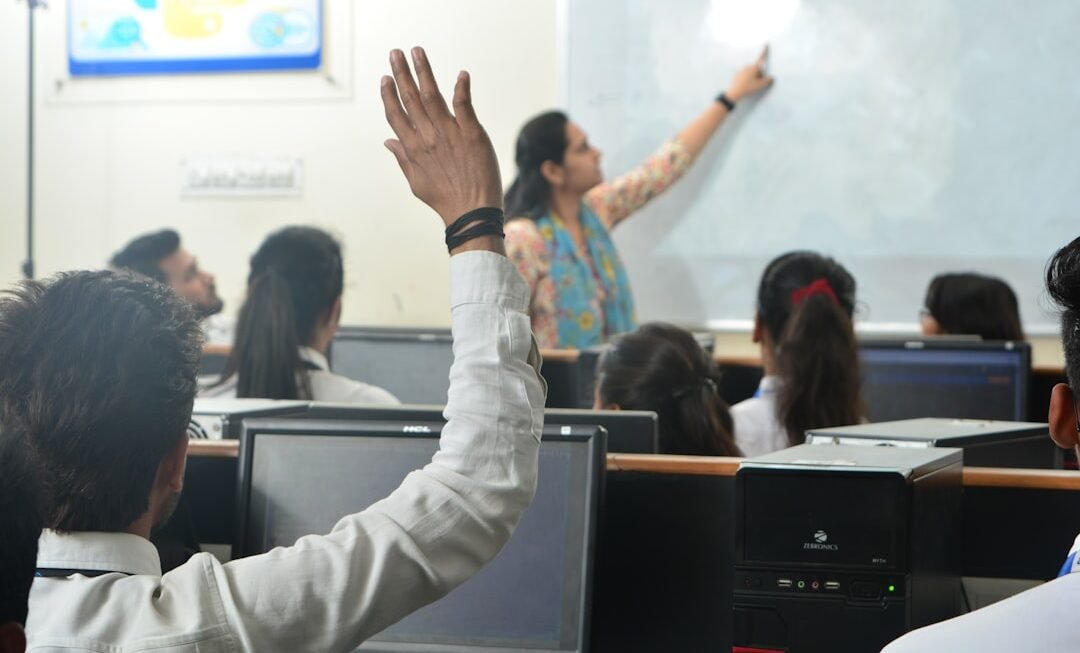Personalized learning pathways represent a transformative approach to education, tailored to meet the unique needs, interests, and abilities of each student. This concept moves away from the traditional one-size-fits-all model, which often fails to engage learners or address their individual challenges. Instead, personalized learning pathways allow students to progress at their own pace, choosing the content and methods that resonate with them.
This approach is grounded in the understanding that every learner is distinct, possessing different strengths, weaknesses, and motivations.
The implementation of personalized learning pathways involves a variety of strategies and tools designed to facilitate individualized learning experiences.
These may include adaptive learning technologies, differentiated instruction, and competency-based assessments. For instance, a student struggling with mathematics might receive targeted interventions that focus on foundational skills before advancing to more complex concepts. Conversely, a student excelling in the same subject could be encouraged to explore advanced topics or engage in project-based learning that fosters deeper understanding.
This flexibility not only enhances student engagement but also promotes a sense of ownership over their educational journey.
Key Takeaways
- Personalized learning pathways cater to individual student needs and preferences, allowing for a more tailored and effective learning experience.
- Artificial intelligence plays a crucial role in analyzing student data and behavior to create personalized learning pathways, making education more efficient and effective.
- Personalized learning pathways benefit students by promoting self-paced learning, increasing engagement, and addressing individual learning styles and needs.
- Challenges and limitations of personalized learning pathways include the need for accurate data, potential privacy concerns, and the difficulty of personalizing certain subjects or skills.
- Implementing personalized learning pathways in online education requires a robust technological infrastructure, teacher training, and ongoing support for students.
The Role of Artificial Intelligence in Personalized Learning
Artificial intelligence (AI) plays a pivotal role in the development and implementation of personalized learning pathways. By leveraging vast amounts of data, AI can analyze individual student performance and learning behaviors to create tailored educational experiences. For example, AI algorithms can track a student’s progress in real-time, identifying areas where they excel or struggle.
This data-driven approach allows educators to intervene promptly and adjust instructional strategies accordingly. Moreover, AI can recommend resources and activities that align with a student’s interests and learning style, further enhancing the personalization of their educational experience. One notable application of AI in personalized learning is the use of intelligent tutoring systems.
These systems provide immediate feedback and support to students as they work through problems or concepts. For instance, platforms like Carnegie Learning utilize AI to adapt math instruction based on student responses, offering hints or alternative explanations when necessary. This level of responsiveness not only helps students grasp challenging material but also fosters a growth mindset by encouraging them to persist through difficulties.
As AI technology continues to evolve, its potential to enhance personalized learning pathways will likely expand, offering even more sophisticated tools for educators and learners alike.
Benefits of Personalized Learning Pathways for Students
The benefits of personalized learning pathways for students are manifold, significantly impacting their academic performance and overall educational experience. One of the most significant advantages is increased engagement. When students have the autonomy to choose their learning paths and explore topics that interest them, they are more likely to invest time and effort into their studies.
This intrinsic motivation can lead to improved academic outcomes, as students are more inclined to take ownership of their learning process. Additionally, personalized learning pathways can help address diverse learning needs within the classroom. Students with varying abilities often struggle in traditional settings where instruction is uniform.
Personalized pathways allow for differentiation, enabling educators to provide tailored support that meets each student’s unique requirements. For example, a student with dyslexia may benefit from specialized reading programs that utilize multisensory approaches, while another student may thrive in a project-based environment that emphasizes collaboration and creativity. By accommodating these differences, personalized learning pathways foster an inclusive atmosphere where all students can succeed.
Challenges and Limitations of Personalized Learning Pathways
Despite the numerous advantages associated with personalized learning pathways, several challenges and limitations must be addressed for successful implementation. One significant hurdle is the need for substantial resources, including time, training, and technology. Educators must be equipped with the skills and knowledge necessary to design and facilitate personalized learning experiences effectively.
This often requires professional development opportunities that may not be readily available in all educational settings. Moreover, the reliance on technology can pose challenges related to equity and access. Not all students have equal access to digital devices or high-speed internet, which can create disparities in learning opportunities.
In some cases, students from lower socioeconomic backgrounds may find themselves at a disadvantage if their schools lack the necessary infrastructure to support personalized learning initiatives. Addressing these inequities is crucial to ensuring that all students can benefit from personalized learning pathways.
Implementing Personalized Learning Pathways in Online Education
The rise of online education has provided a fertile ground for the implementation of personalized learning pathways. Online platforms offer flexibility and accessibility that traditional classrooms may lack, allowing students to learn at their own pace and on their own terms. For instance, Massive Open Online Courses (MOOCs) often incorporate adaptive learning technologies that adjust content based on individual performance, enabling learners to navigate through courses tailored to their specific needs.
To effectively implement personalized learning pathways in online education, institutions must prioritize user-friendly interfaces and engaging content delivery methods. Interactive elements such as quizzes, discussion forums, and multimedia resources can enhance the online learning experience by catering to various learning styles. Additionally, educators should leverage data analytics tools to monitor student progress and provide timely feedback.
By fostering a supportive online community and utilizing technology strategically, educators can create an environment conducive to personalized learning.
Ethical Considerations in Personalized Learning Pathways
As personalized learning pathways gain traction in educational settings, ethical considerations surrounding data privacy and security become increasingly important. The collection and analysis of student data are essential for tailoring educational experiences; however, it raises concerns about how this information is stored and used. Educators and institutions must ensure that they adhere to strict data protection regulations and prioritize transparency with students and parents regarding data usage.
Furthermore, there is a risk of reinforcing biases through algorithmic decision-making in AI-driven personalized learning systems. If the data used to train these algorithms reflects existing inequalities or stereotypes, it could lead to biased recommendations that disadvantage certain groups of students. To mitigate this risk, developers must prioritize fairness in algorithm design and continuously evaluate the impact of their systems on diverse student populations.
Engaging stakeholders in discussions about ethical practices can help create a more equitable landscape for personalized learning pathways.
The Future of Personalized Learning Pathways
The future of personalized learning pathways is poised for significant evolution as advancements in technology continue to reshape education. Emerging technologies such as virtual reality (VR) and augmented reality (AR) hold immense potential for creating immersive learning experiences tailored to individual preferences. For example, VR simulations can transport students into historical events or scientific phenomena, allowing them to engage with content in ways that traditional methods cannot replicate.
Moreover, as artificial intelligence becomes more sophisticated, its ability to analyze complex data sets will enhance the personalization of learning experiences further. Predictive analytics could identify potential challenges before they arise, enabling proactive interventions that support student success. Additionally, the integration of social-emotional learning components into personalized pathways will likely gain traction as educators recognize the importance of addressing students’ emotional well-being alongside academic achievement.
Success Stories and Case Studies in Personalized Learning Pathways
Numerous success stories illustrate the effectiveness of personalized learning pathways across various educational contexts. One notable example is Summit Public Schools, a network of charter schools in California that has successfully implemented personalized learning models since 2013.
Data from their programs indicate that students are not only meeting but exceeding state standards in key subjects. Another compelling case study comes from the use of personalized learning pathways at the University of Michigan’s College of Engineering. The institution adopted a competency-based education model that allows students to progress through courses based on mastery rather than time spent in class.
This approach has led to increased retention rates and higher levels of student satisfaction as learners feel empowered to take control of their educational journeys. These examples underscore the potential of personalized learning pathways to transform education by fostering engagement, inclusivity, and academic success among diverse student populations. As more institutions embrace this innovative approach, it is likely that we will see an increasing number of success stories emerge from various educational settings around the globe.












